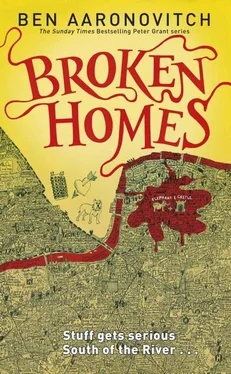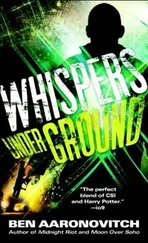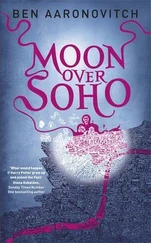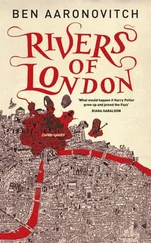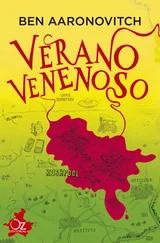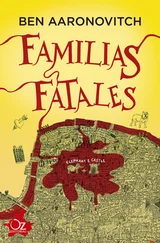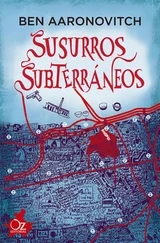Ben Aaronovitch - Broken Homes
Здесь есть возможность читать онлайн «Ben Aaronovitch - Broken Homes» весь текст электронной книги совершенно бесплатно (целиком полную версию без сокращений). В некоторых случаях можно слушать аудио, скачать через торрент в формате fb2 и присутствует краткое содержание. Год выпуска: 2013, ISBN: 2013, Издательство: Orion, Жанр: sf_fantasy_city, на английском языке. Описание произведения, (предисловие) а так же отзывы посетителей доступны на портале библиотеки ЛибКат.
- Название:Broken Homes
- Автор:
- Издательство:Orion
- Жанр:
- Год:2013
- ISBN:9780575132498
- Рейтинг книги:4 / 5. Голосов: 1
-
Избранное:Добавить в избранное
- Отзывы:
-
Ваша оценка:
- 80
- 1
- 2
- 3
- 4
- 5
Broken Homes: краткое содержание, описание и аннотация
Предлагаем к чтению аннотацию, описание, краткое содержание или предисловие (зависит от того, что написал сам автор книги «Broken Homes»). Если вы не нашли необходимую информацию о книге — напишите в комментариях, мы постараемся отыскать её.
Broken Homes — читать онлайн бесплатно полную книгу (весь текст) целиком
Ниже представлен текст книги, разбитый по страницам. Система сохранения места последней прочитанной страницы, позволяет с удобством читать онлайн бесплатно книгу «Broken Homes», без необходимости каждый раз заново искать на чём Вы остановились. Поставьте закладку, и сможете в любой момент перейти на страницу, на которой закончили чтение.
Интервал:
Закладка:
‘I don’t know why you bother writing this down,’ they say as they exaggerate the value of their goods for insurance purposes. ‘It’s not like you’re going to catch them, is it?’ To which we have no answer — because they’re right. We’re not going to catch them for that particular burglary, but we often catch them later and then get some of your stuff back — the stuff that’s now been replaced by better stuff from the insurance. Most of the recovered goods are junk but some of it attracts the eagle eye of the Arts and Antiques Squad who grab it, photograph it and put it on a database called, with the Met’s unerring ear for a euphonious acronym, LSAD — the London Stolen Art Directory.
They keep saying that they’re going to make it searchable by the public but I wouldn’t hold my breath. It is possible for it to be searched by a police officer, if he can persuade his line manager to push for his OCU to be granted access via their terminals. Not an easy thing to do, when the line manager in question is hazy on the concept of databases, internet searches and indeed the very notion of a ‘line manager’. I’d gained access just after the New Year and now made checking new arrivals part of my morning routine. ‘Anything to avoid real work,’ was Lesley’s verdict and Nightingale gave me the same long-suffering look he gives me when I accidentally blow up fire extinguishers, fall asleep while he’s talking, or fail to conjugate my Latin verbs.
So you can imagine how pleased I was when one cold dark morning, a fortnight after my visit to Swindon, I spotted my first find. I always start with the rare books and I almost missed it because it was in German; Uber Die Grundlagen Dass Die Praxis Der Magie Zugrunde Leigen but fortunately it had been translated as About the Basics that the Practice of Magic Reference Lies probably by Google Translate. There was a picture of the frontispiece listing the author as Reinhard Maller, published in 1799 in Weimar. I checked for Maller in the mundane library’s card index but found nothing.
I made a note of the case number, printed the description and showed it to Nightingale later that morning during practice. He translated the title as On the Fundamentals that Underlie the Practice of Magic.
‘Show off,’ I said.
‘I think you had better secure this,’ he said. ‘And see if you can track down where it came from.’
‘Is it something to do with Ettersberg?’ I asked.
‘Good Lord, no,’ he said. ‘Not everything German relates back to the Nazis.’
‘Is it a translation of the Principia Artis Magicae?’ I asked.
‘I can’t tell without having a look.’
‘I’ll get onto Arts and Antiques,’ I said.
‘Later,’ said Nightingale. ‘After practice.’
Arts and Antiques, definitely not known by the rest of the Met as the Arts and Crafts squad, occasionally recover an item so valuable that even the evidence storage locker in the middle of New Scotland Yard isn’t secure enough. For those items they rent space at the auction house Christie’s where they laugh at cat burglars, tweak the nose of international art thieves and have some of the most serious, and rumoured to be illegal, security measures in the world. That’s why the following morning I found myself down on King Street in St James’s where even a miserable icy rain couldn’t wash away the smell of money.
Nor could a stick of incendiary bombs, back in April 1941, when it destroyed everything except the facade of number 8 King Street, the London home of Christie’s since 1823. They rebuilt in the 1950s, which was why the foyer was disappointingly shapeless and low ceilinged, albeit in an expensive air-conditioned and marble-floored way.
The Folly doesn’t generate the gigabytes of paperwork that the rest of the Met does but what we do produce tends to be a bit too esoteric to be outsourced to an IT company in Inverness. Instead, we have one elderly guy in a basement in Oxford, although admittedly the basement’s under the Bodleian library and the guy is a Doctor of Philosophy and a Fellow of the Royal Society.
I found Professor Harold Postmartin D.Phil. F.R.S. B.Mon hunched over the book in a viewing room upstairs. Designed, I learnt later, to be deliberately neutral and not distract from whatever it was you were supposed to be viewing, the room was all beige carpet, white walls and aluminium and black canvas faux Bauhaus chairs. Postmartin was examining his prize on an unornamented lectern. He was wearing white gloves and using a plastic spatula to turn the pages.
‘Peter,’ he said when I entered. ‘You have surpassed yourself this time. Truly surpassed yourself.’
‘Is it kosher?’ I asked.
‘I should say so,’ said Postmartin. ‘A proper German grimoire. I haven’t seen one of these since 1991.’
‘I thought it might be a copy of the Principia.’
Postmartin glanced at me over the top of his reading glasses and grinned. ‘It’s certainly based on Newtonian principles but I think it’s more than a copy. My German is somewhat rusty but I believe I’m right in saying that it looks like it came out of the Wei?e Bibliothek in Cologne.’
My German’s worse than my Latin, but even I thought I could translate that.
‘White Library?’ I asked.
‘Also known as the Bibliotheca Alba and the centre of German magical practice until 1798 when the French, who owned that bit of Germany at the time, shut down the university.’
‘The French didn’t like magic, then?’
‘Hardly,’ said Postmartin. ‘They shut down all the universities. It was one of the unfortunate side effects of the French Revolution.’
Details of what happened to the contents of the library next were sketchy but, according to Postmartin’s records, the entire Wei?e Bibliothek had been smuggled out of Cologne to Weimar.
‘Where, buoyed no doubt by the rising tide of German nationalism,’ said Postmartin, ‘it became the Deutsche Akademie der Hoheren Einsichten zu Weimar or the Weimarer Akademie der Hoheren Einsichten for short.’
‘Because that is much shorter,’ I said.
‘The Weimar Academy of Higher Insights,’ said Postmartin.
‘Higher insights?’ I asked.
‘ Hoheren Einsichten can translate as either that or “higher understanding,”’ said Postmartin. ‘As both in fact. German really is a splendid language for discussing the esoteric.’
It wasn’t quite the German version of the Folly. ‘Far more rigorous, much less smug,’ said Postmartin who believed that the Akademie had probably been in advance of the Folly for much of the nineteenth century.
‘Although one likes to think it was neck and neck by the 1920s,’ said Postmartin. In the 1930s it was swallowed up by Himmler’s Ahnenerbe , an organisation dedicated to providing both an intellectual framework for Nazism and Indiana Jones with an endless supply of disposable bad guys.
And round we come to Ettersberg once more, I thought. And whatever it was Nightingale and his doomed chums had been doing there in 1945.
I asked whether the Germans had a modern equivalent of the Folly.
‘There’s a branch of the Bundeskriminalamt — that’s the Federal Police Force — based in Meckenheim called the Abteilung KDA which stands for Komplexe und Diffuse Angelegenheiten which translates as the Department for Complex and Unspecific Matters.’
Leaving aside the wonderful name, the Federal Government maintained a most un-German vagueness about what the department’s responsibilities are. ‘A stance uncannily similar to that taken by their counterparts in Whitehall with regards to the Folly,’ said Postmartin. ‘That in itself is quite distinctive, really.’
Читать дальшеИнтервал:
Закладка:
Похожие книги на «Broken Homes»
Представляем Вашему вниманию похожие книги на «Broken Homes» списком для выбора. Мы отобрали схожую по названию и смыслу литературу в надежде предоставить читателям больше вариантов отыскать новые, интересные, ещё непрочитанные произведения.
Обсуждение, отзывы о книге «Broken Homes» и просто собственные мнения читателей. Оставьте ваши комментарии, напишите, что Вы думаете о произведении, его смысле или главных героях. Укажите что конкретно понравилось, а что нет, и почему Вы так считаете.
